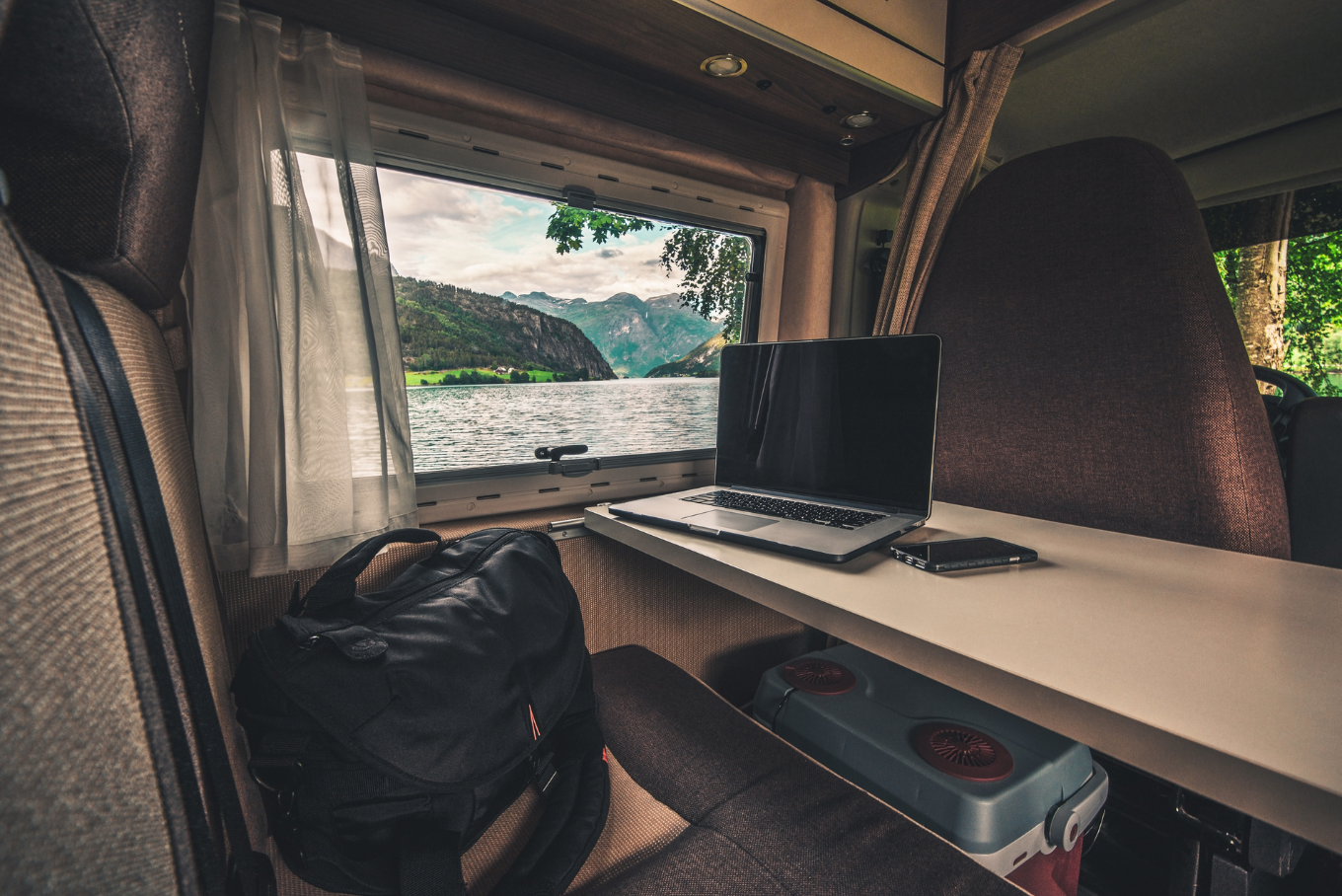
The rise of working from home during the Covid-19 pandemic has made us more aware than ever that work can be done remotely. As a result, digital nomadism, working holidays and even long-term international moves are on the rise. At PocketSmith, we’re big fans of remote working from all over the world. We love the work-life balance it brings, and our team appreciates the freedom to explore the world without giving up their job to do it. Here are our top tips on working remotely overseas, if you’re craving a change of scenery!
Whether you’re looking to work abroad from one location or go full digital nomad and move around often, it’s important to carefully select the places you’ll visit. Depending on what type of work you do, you’ll need to research the lifestyle there, places to live, the climate, safety levels, and the cost of living to establish whether it’s the right place to set yourself up. Numbeo is a handy tool to help you compare the cost of living in different places across the world. It pays to know how far your money will go in a new city!
The most important part of working remotely overseas is the tax and visa implications. You’ll need to consider tax laws in your home country and the country you want to work from, as some countries require you to pay tax in both the country you reside in and the country of which you’re a resident or citizen. Speak to an accountant about your own travel plans to ensure you’re compliant. A mistake could cost you at tax time.
Working remotely from overseas may require a visa, and the type of visa you need may vary depending on whether you’re self-employed or an employee of a business. According to Visa Guide, a number of countries are now offering Digital Nomad Visas, including Spain, Portugal, and Iceland!
Different countries have different levels of digital nomad activity, but in some places you’ll find a thriving and vibrant community of others working remotely. It’s worth exploring this before you go, particularly if you’re looking to meet new people on your adventures.
Working remotely from overseas can definitely take some getting used to, especially if you’re used to working 9-5. Depending on the lifestyle of your new location, you may want to work around different times of the day to make the most of the climate or local activities and schedules. Plus, consider whether you need to coordinate with other time zones. If you’re working in Spain servicing clients in Sydney, you may need to work later into the evening in order to be available to clients or team members in their local time zone. Looking at time zones before you leave — and remembering to factor in daylight savings changes — can help you plan a viable routine that balances work and play.
If you work for yourself and set your own rates, you may need to adjust them to suit your new lifestyle. If the cost of living is higher as a digital nomad than in your previous lifestyle, you may find your regular income is insufficient. Likewise, if your cost of living is lower, you may be able to set some new money goals to stash the difference while you’re traveling.

Getting paid while working remotely can be complicated. Decide whether you’ll get paid in your local currency or your home currency, or in one central currency that you convert later. Keeping records for your tax agent is essential! PocketSmith is a multi-currency personal finance software that keeps up with you as you travel to new countries and manage money in new currencies.
If you’re getting paid in your home currency but living on another currency, consider how you’ll convert your money. If you’re using a debit or credit card in your home country’s currency, be sure to check fees and conversion rates to ensure you’re not missing out. If you’re moving around often, you may benefit from a multi-currency card that allows you to pay in multiple local currencies.
Decide whether you’ll let your clients and customers know you’re working from overseas. If you’re concerned it could impact your working relationship, you may choose to omit it from your website or email communications. However, if you’re going to be working in different time zones, it’s often worth ensuring your clients and customers know where they stand. Adding a note in your email signature or setting an auto-responder to let people know when they can expect to hear from you can be really helpful.
Access to an emergency fund is more important than ever when working remotely overseas, as unexpected costs can arise and you may need to make an emergency trip back to your home country. Review your financial position, calculate the costs of last-minute travel arrangements, and ensure you’re comfortable with the amount of financial security you’re taking with you.
Digital nomads need insurance. Things go wrong, we get sick, accidents happen. There’s a good chance you won’t be covered by other countries’ healthcare systems, so having adequate insurance is essential in protecting yourself.
Being a digital nomad is exciting, but don’t forget to take security seriously — particularly if you’re moving around a lot. Your passport will become your most important possession while traveling, as will your credit, debit or travel cards. If you’re working digitally, you’ll likely also have tech like laptops, iPads, phones and cameras that you need to protect. Make sure you’re able to keep your possessions safe on your digital nomad adventure.
Emma Edwards is a finance copywriter and blogger, on a mission to humanize the financial services industry by creating meaningful content that’s accessible and empowering. You’ll find her penning money tips at her blog, The Broke Generation, sharing financial insights on Instagram, or injecting life into content for her business clients.